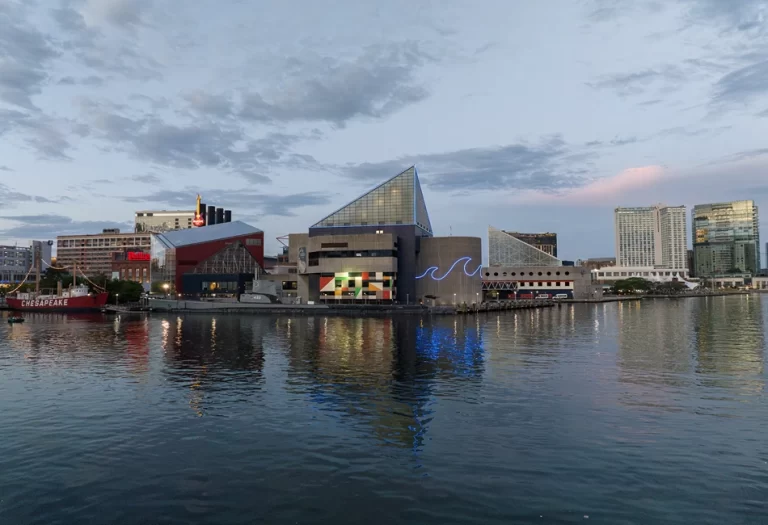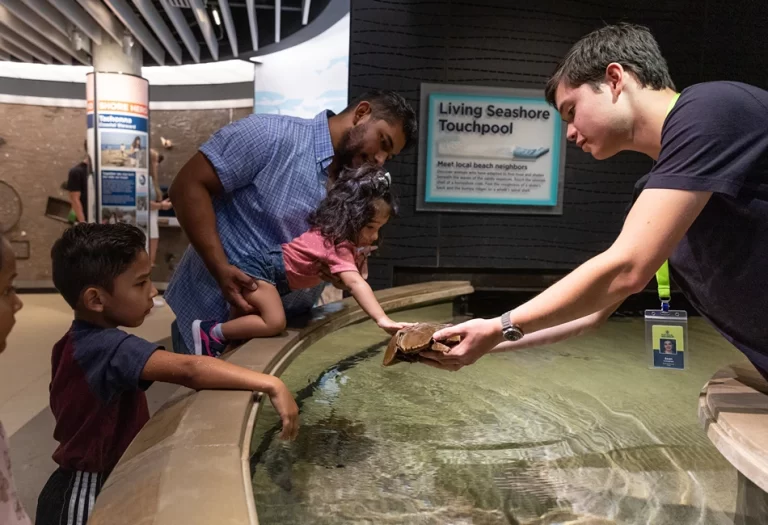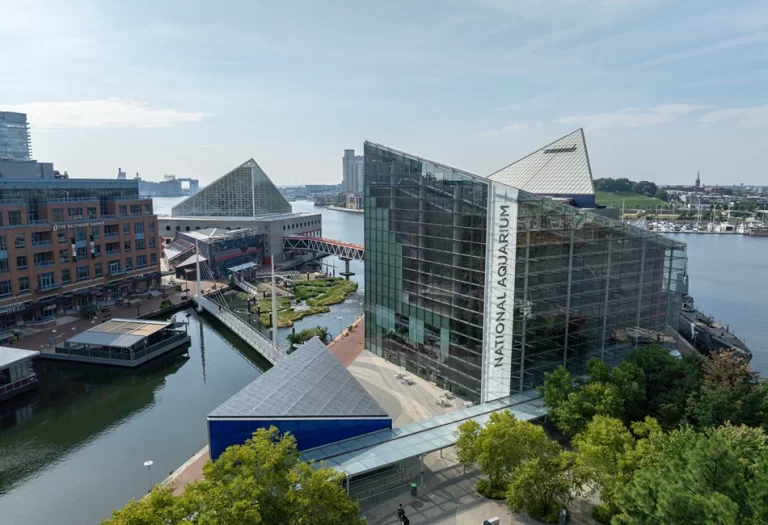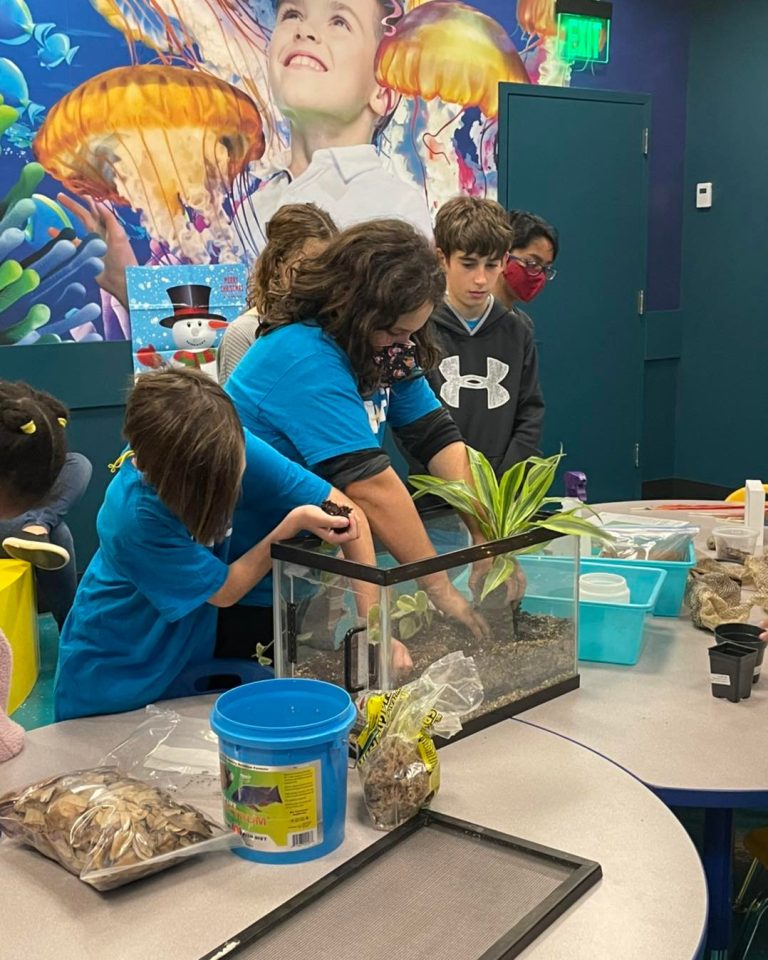Science comes to life through engaging exhibits and interactive experiences
The National Aquarium offers a variety of educational programs tailored for students from pre-K through high school, focusing on marine life, environmental conservation, and STEAM concepts. These field trips immerse students in real-world scientific learning through hands-on activities and interactive exhibits, with opportunities to explore marine biology, ecosystems, and sustainability efforts. The programs are meticulously designed to align with Next Generation Science Standards, reinforcing classroom lessons with practical experiences such as animal encounters and lab investigations.
Educational Opportunities
The aquarium’s educational offerings, which include both guided and self-guided tours, are designed to equip students with practical skills. Students can explore diverse aquatic environments, from coral reefs to Chesapeake Bay habitats, learning about species like sharks, dolphins, and turtles. Activities often involve water quality testing and ecological surveys, fostering skills in scientific research and environmental stewardship. Programs such as “What Lives in the Harbor” provide students with the opportunity to connect local waterway conditions to wildlife patterns, building awareness about regional conservation issues.
Outreach Programs
Beyond on-site programs, the aquarium supports outreach efforts and partnerships with schools. Programs like the AquaPartners initiative connect students to nearby ecosystems, encouraging fieldwork and environmental action. Another notable offering is the Terrapins in the Classroom project, which allows students to raise and release diamondback terrapins, fostering a deep connection to local wildlife and conservation efforts. This holistic approach cultivates ecological responsibility and inspires students to pursue careers in environmental sciences and marine studies.
Additionally, the National Aquarium promotes community engagement through volunteer and internship opportunities for high school and college students. These experiences emphasize leadership development and environmental justice, encouraging youth to become advocates for sustainability. Programs like the Leaders for Environmental Action Fellowship further empower participants by providing hands-on conservation projects, making them ambassadors of ocean conservation.







